Let’s be real — the past few months definitely took a toll on our well-being. Living amidst a pandemic is both mentally and physically exhausting, after all. And while lockdown restrictions have loosened up in the past month, the fact remains that we’re still advised to stay at home and only go out for necessary errands. So, it’s highly likely for one to develop cabin fever symptoms due to prolonged confinement indoors.
It’s worth noting that cabin fever in itself is not considered a psychological disorder. Nonetheless, it’s important to be wary of the feelings that come with it, as it might lead to worse conditions. That said, how do you know if you might have it, you ask? Here’s a rundown of the most obvious cabin fever symptoms, as well as some tips on what you can do to overcome these!
The most common cabin fever symptoms
1. You get irritated or impatient easily
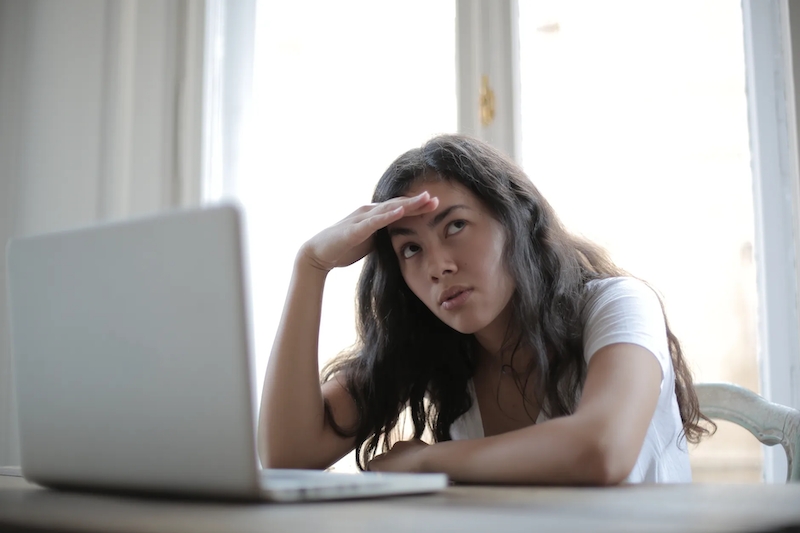
This is perhaps the most obvious among all cabin fever symptoms. Whether or not you’re the moody type, you’ll notice this when you’re snapping at people for no valid reason. In short: everyone gets on your nerves, just because. (Yikes!) That said, it’s important to make a conscious effort not to snap at people (especially those who don’t deserve it). But while you’re at it, you might need to think about why you’re feeling such in the first place!
2. You have trouble focusing
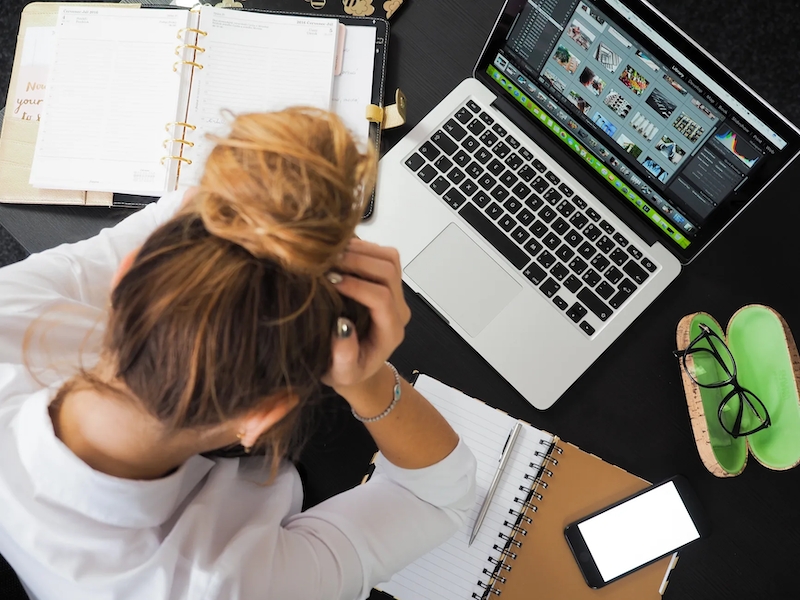
Another sign of cabin fever is a lack of concentration. Though, this might vary depending on your natural attention span. You’ll notice this when you get fidgety and your brain isn’t cooperating — even if you’re supposed to have fewer distractions at a time like this. You see, the thing with cabin fever is that it leads you to over-analyse and over-think even the simplest tasks. Yup, even if the tasks that you already know by heart or by reflex!
3. You lack energy and motivation
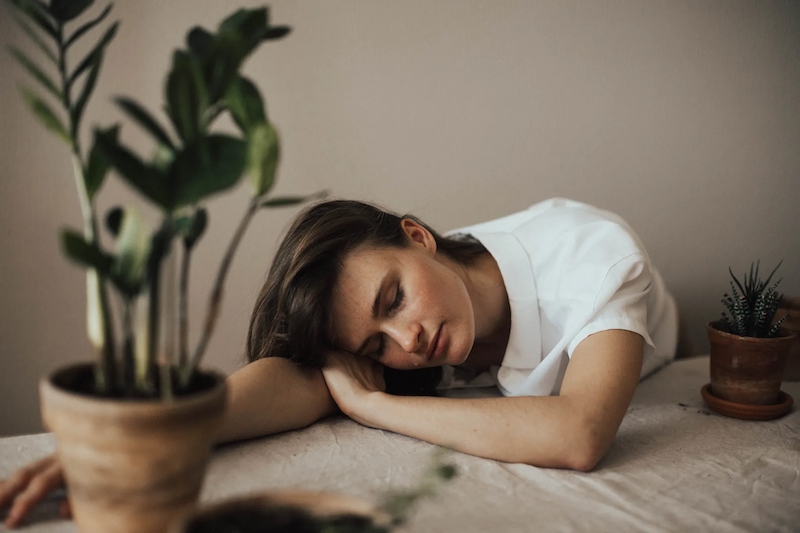
This could come at the same instances as the previous point. But for some, there are also times when you ‘just don’t feel like it,’ even when your brain is totally up for the task at hand. Alternatively, this could also apply to hobbies you normally enjoy doing! So, when you find yourself lethargic (even after you drank coffee already), it might be your body’s way of begging you for some outdoor time.
Also read: 8 Hidden Benefits of Drinking Coffee Every Day, According to Science
4. You get weird, random cravings

By this, I mean food that you either don’t even like that much or normally wouldn’t crave. Personally, I’ve been craving potato chips and peanuts a lot ever since quarantine happened. How do I know that this isn’t just, say, PMS? Well, for starters, I haven’t been eating a lot of junk food for the past four years. (And mind you, I’m not even that health-conscious!) Does this sound familiar? Well then, it might be a sign of cabin fever taking its toll on your palate.
5. You can’t sleep well at night
This may come in the form of staying up late or suddenly waking up in the middle of the night. Either way, it’s not a good sign! Irregular sleeping patterns can also lead to a domino effect on your overall disposition and productivity for the rest of the day. Such is the case when your body is having a hard time differentiating morning from evening, since you’ve been cooped up for so long.
6. You just want to stay in bed all-day

While this might be due to a lack of sleep (see previous item), it could also be that feeling of not wanting to get up in the first place. Sure, sometimes it’s a rainy morning that tempts you, but other times, it’s not even the weather. You see, when you’re forced to stay indoors for an extended period, it can feel as though getting out of bed is pointless! Like, sometimes, you’re not even sleepy; you just don’t want to stand up and move around.
7. You often get a sense of hopelessness
Another one of the most tell-tale cabin fever symptoms is a constant bout of sadness and despair. While it’s a whole different thing if you have diagnosed clinical depression, there’s also such a thing as seasonal affective disorder (SAD), which is prevalent to countries that have a winter season. This happens when the sun doesn’t come out as much and it’s way too cold outside, which then triggers feelings of depression.
Similar to SAD, quarantine-induced cabin fever can also pose a serious threat to your mental health. If you find yourself feeling persistently sad, hopeless, or even just numb, perhaps a literal change of scenery (i.e., going outdoors) is needed! But if that doesn’t work even after quite some time, then it might be time to seek professional help.
Also read: 7 Self-Care Tips to Protect Your Mental Health During the COVID-19 Pandemic
Ways to combat cabin fever
1. Get movin’

Time and time again, we are told that exercise releases endorphins, which trigger positive feelings. And it’s true — come on, have you ever finished a workout and ended up regretting it? Or have you ever gone out for a walk around the block and not felt the least bit better? Yep, didn’t think so! The fact that it helps you keep fit doesn’t hurt either, I guess.
2. Prioritise work-life balance
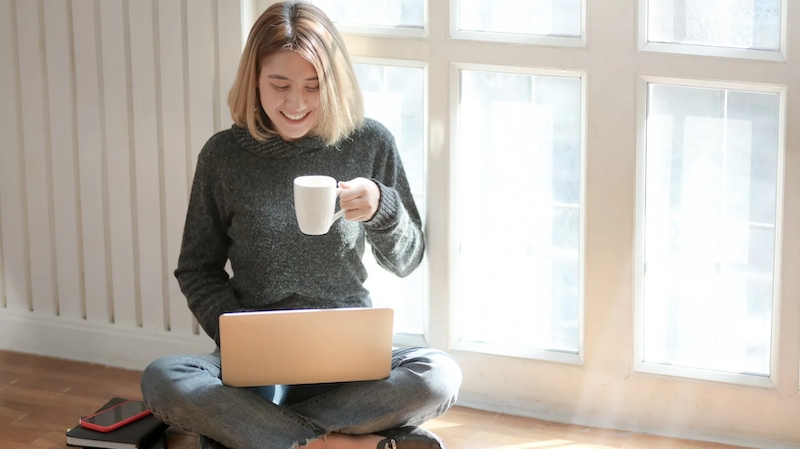
Honestly, I can’t stress enough the importance of this, especially given that work-from-home has become the new normal (for better or for worse). Just like with certain people in our lives, it’s good to establish boundaries when it comes to your work and personal time. This includes sticking to a daily routine, opting for a separate workspace (if possible), and closing your work-related tabs (even the ones in your head!) when it’s past business hours.
Also read: How to Work From Home Productively, Without Losing Your Sanity
3. Set realistic deadlines

This is another great way to cope with symptoms of cabin fever when it comes to working (or studying) from home. We live in trying times, so if it’s taking you longer to finish things that you used to finish more quickly, don’t be too hard on yourself! Instead, try to set realistic (and possibly extended) deadlines that would help you feel less stressed out. Oh, and of course, don’t be afraid to ask for help when you really need it!
4. Change out of your pyjamas
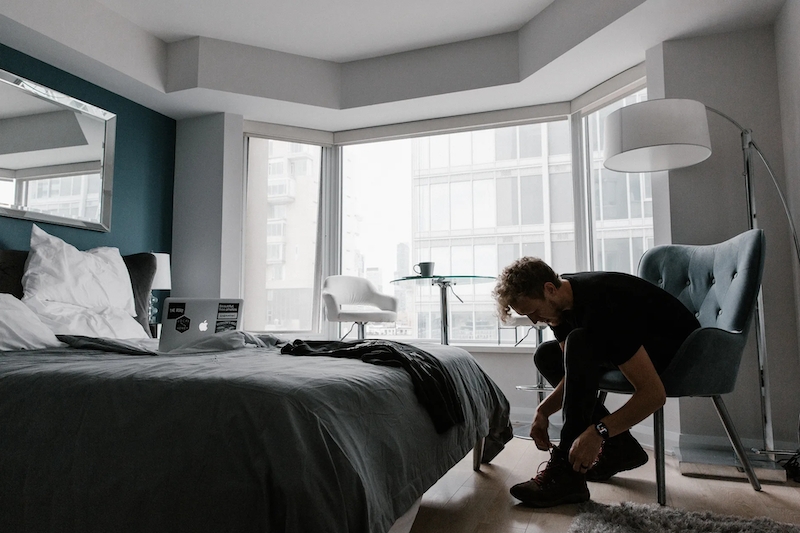
Or for that matter, go on and wear something that you’d wear when going out… even if you’ll just be at home all day! Honestly, this makes all the difference, especially as far as productivity is concerned. Sure, your for-home-only clothes are probably comfort food in retail form, but does it really motivate you to get out of bed and carpe diem? Probably not. And you know what they say: look good, feel good!
Also read: How Dressing Up for Work at Home Can Help You Stay Productive
5. Eat and sleep at normal times

Okay, I know that sometimes, this is easier said than done. After all, you don’t have to wake up extra early to dress up and get to the office on time. And with all those new TV shows and movies to binge-watch online? Ah, the temptation to stay up all night is real. On the food side, it can get tempting to just snack all day and skip meals, what with the absence of office lunch breaks.
Your sleep and diet both affect your mood, energy levels, and even cravings. So, try to keep that in mind the next time you decide to skip lunch because your kitchen is just there, or scrimp on sleep because you want to see what happens next in your fave K-drama.
6. Treat yourself!
Sure, discipline is important when establishing your routine (and therefore keep cabin fever symptoms at bay), know that it’s important to indulge yourself, too. So, go on and treat yourself every now and then, especially when you feel like you totally deserve it! Whether it’s online shopping, ordering your favourite comfort food, watching your guilty-pleasure reality show, or whatever it is that makes you feel good; again, it’s all about balance.
7. Talk to your friends

And I don’t mean simply chatting with them on Telegram, but through a video call! While nothing beats face-to-face social interactions, social distancing is (and should be) our utmost priority in these times. Take the time to schedule regular video calls with your favourite people; this can be monthly, weekly, or even daily — depending on where you are on the introvert-extrovert spectrum. Of course, since friendship is a two-way street, make sure to set aside time when they need you, too!
8. Be honest with yourself about how you feel
Self-awareness is key, so if you ever feel like you’re experiencing cabin fever symptoms, it’s best to address these. That includes admitting to yourself that you’re not feeling your best, even if you can’t pinpoint yet an exact reason! That said, remember that it’s okay not to be okay. The more you become aware whenever you’re feeling off, the sooner you can figure out what triggers you — and how you can best cope!
9. Live in the sunshine!

Obviously, that’s not meant to be taken literally…unless sunburns are your thing. Kidding aside, though, moderate exposure to sunlight really does wonders. I’m definitely not saying that it’s the cure for cabin fever; but hey, it just might be what your mind and body are asking for! Since we’re still encouraged to stay at home as much as possible, you might not notice when you’ve been indoors for too long.
That said, take the time to go outside and bask in the sunshine — even if it’s just at your yard or balcony. Though, if these aren’t an option, then how about opening up your curtains? You see, not only does sunlight keep your bones strong (thanks, vitamin D!) but it also boosts levels of serotonin (A.K.A. the happy hormone). Just don’t forget to put on sunscreen, okay?
Also read: Here’s Why You Should Be Getting Sunlight Even During Lockdown
While I can never promise that these are an end-all, cure-all, it definitely won’t hurt to try and see if these make a difference! At the end of the day, we can all use as much help as we can get.
Have you ever experienced any of these cabin fever symptoms, especially when lockdown was at an all-time high? Or if you’re still experiencing this until now, are there any tried-and-tested coping tips that we missed? Go on and tell us all about it in the comments!





